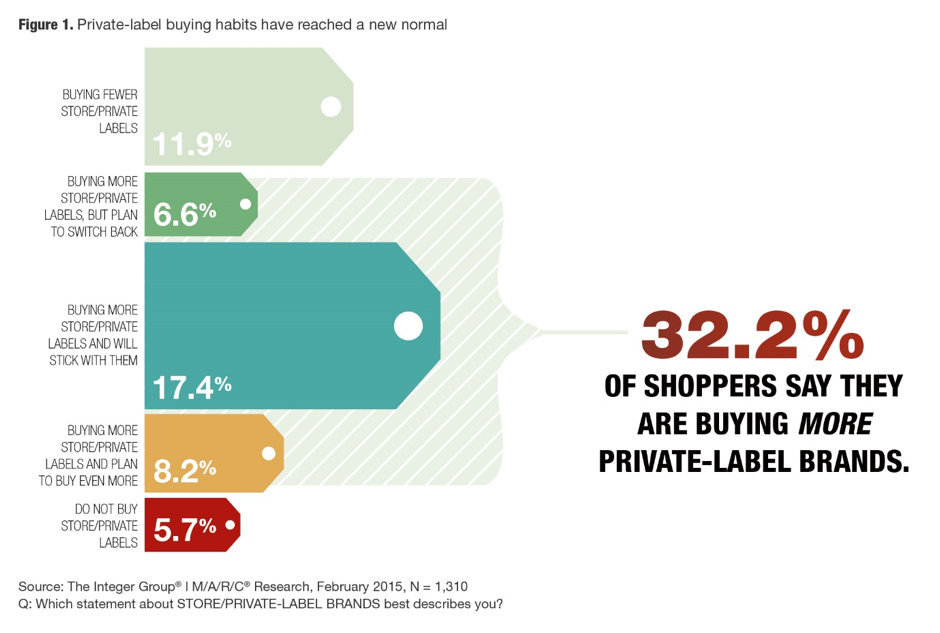House brands or labels, also known as private labels or retailer brands, are nothing new to the retail industry. Even though private label programmes were deemed unpopular in the past, today we are seeing a global shift in consumers’ loyalty from manufacturers’ brands and labels to retailers’ own private brands and labels.
The reason for this is simple: customers are becoming less reliant on the manufacturer’s brands and more dependent on the store itself.
The private-label or private-brand concept can be used as an effort to expand on a retailer’s current merchandising mix, keeping things fresh and relevant, or to use it as a marketing tool to foster a clear brand image in the minds of consumers, boosting customer loyalty in the process.
To achieve any of these objectives successfully, the retailer should have a clear understanding of its target market and know what the impact of the no-name brand will be for its customers.
Extensive research must be done to understand who their customers are, how they shop, when they shop, and why they shop. They must also know how their customers will react to their private labels.
House brands are often associated with lower quality because retailers offer their home brands at lower prices than national brands. Because of this, private label strength varies with economic conditions. In stronger economic periods, people tend to spend more on national brands, but they tend to fall back on private-label goods when the economy is suffering.
Many retailers have found ways to work around this issue and benefit in any economic climate. One of the solutions for this includes developing tiered house brands that cater to different consumers.
Advantages that retailers with house brands can enjoy include the following:
1. Improved quality
A retailer with its own brand allows itself to have complete control over the development, sourcing, warehousing, merchandising and marketing of its own products. In the past, there was a distinctive quality gap between private-label and brand-name products, but today this gap is closing up quickly and the quality of private-label goods are higher and better than ever before.
Store brands are now not only being positioned as value brands but also as brands equivalent in quality to those of manufacturers or national brands only at lower prices. Private branding may very well be the key to staying ahead of the competition in an ever-changing market.
2. Competitive pricing
Today’s retail environment is filled with a great deal of competition, especially between merchants who compete via lower pricing. While advertising national brands can lure the shopper into the store, research has shown that the retailer actually makes more profit by selling a house brand. House brands offer their retailers higher profit margins with each sale which means these products can be priced more competitively.
3. Exclusivity and differentiation
Manufacturers’/ national brands will always be in demand and retailers won’t be able to afford to remove popular brands from their merchandising mix. The downside of this is that national brands are widely available from competing retailers, and the consumer has a wide variety of store options when seeking out these products. House brands, on the other hand, are exclusive to the retailer’s store and can’t be found anywhere else.
By offering complete exclusivity through establishing a well-priced, trustworthy private label image, the retailer will undoubtedly draw in new customers and build customer loyalty. The shopper will end up becoming more reliant on the store itself because of its exclusive offerings.
In the Private Label issue of The Checkout, The Integer Group and M/A/R/C Research conducted a shopper behaviour study and had come to the conclusion that more and more shoppers are making the shift towards house-branded goods, and they are planning on sticking to them.
Store brands will continue to play an important role in CPG. Fewer shoppers are doubting the quality of private labels and therefore the need for them to revert to brand names are declining. Today, retailers’ home brands can compete fairly with brand names as the playing field becomes level.
Retailers are opting to have a healthy merchandise mix including both name brands and their no-name brands (private brands) in their effort to maximise their sales and profits.


